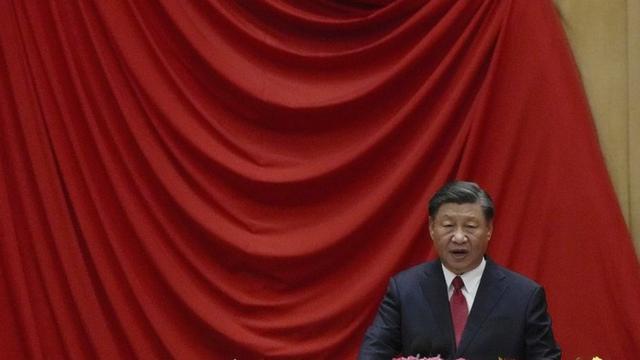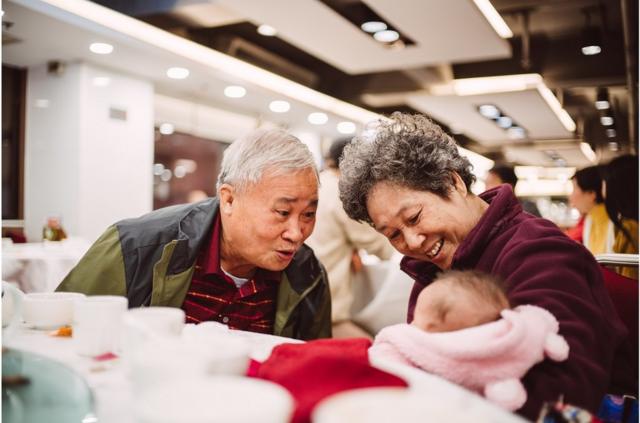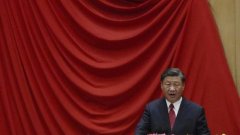
The Third Plenary Session of the 20th Central Committee closed, and a 22,000 -word CPC Central Committee's decision on further deepening reforms and promoting modern Chinese -style modernization (hereinafter referred to as decision).Ten years ago, the reporters of the Third Plenary Session of the Eighteenth Central Committee were more convenient.
After the meeting, a decision was released, although "more than 300 important reform measures were proposed", Economics Think Tank (EIU) believes that the resolution confirms the agency's previous views, that is, the Third Plenary Session of the Third Central Committee is a gradual reform reform reform reform., Not breakthrough.
It is worth mentioning that this wide -covered reform document sets a completion date for more than 300 reform tasks -in 2029, the 80th anniversary of the founding of the People's Republic of China.
This means that in the next five years, if these reforms can be realized in the next five years, then Chinese people's lives will inevitably be affected.
Delayed retirement: Not many ink, huge response
If you are a migrant worker in China, especially young people, the policy of delaying retirement may have an impact on you.
After theThird Plenary Session, delayed retirement immediately became a hot spot for the Chinese Internet.The original text in the decision is, "According to the principle of voluntary and elasticity, promote the gradual delay in the legal retirement age in accordance with the principle of voluntary and elasticity."
From the perspective of the public opinion of Chinese social media, the attention brought by "delay retirement" is riding, and the news that "the retirement of the 65 -year -old retirement after 1990" was widely reposted, but it was confirmed later that it was confirmedNot from official channels.Most netizens are mainly voicing. For example, "rising house prices, three -child policy, medical insurance reform, delayed retirement, can I leave the way for young people to live? I feel stressed that I can't live 65?"
The current regulations are 60 years old, female cadres are 55 years old, and female workers are 50 years old.
According to the China Academy of Social Sciences China Pension Ectulative Report 2019-2050 forecast, pension collection will appear in 2028 and consume cumulative balances in 2035.

"China's postponement of retirement age is inevitable." Yi Fuxian, a researcher at the University of Wisconsin-Madison, said that China ’s future care crisis is much more difficult than Britain and the United States. China’ s future retirement will be retired in the future.Age will inevitably be later than Britain and the United States.
In 2020, China ’s 65-year-old and above elderly people correspond to 5 labor forces; Yi Fuxian estimates that by 2035, it will only correspond to 2.4 labor forces; by 2050, only 1.5 labor force (the United States corresponds to 2.4-2.5).The proportion of elderly people over 65 in China increased from 14%in 2020 to 25%in 2035 and 35%in 2050.
In this case, Yi Fuxian believes that China is facing dilemma: if the retirement age is delayed, it will exacerbate the unemployment crisis.But if it is not postponed, it will be delayed sharply in the future, which will cause dissatisfaction.Economist think tank also believes that China's future labor shortage will be solved mainly through delayed retirement.The benchmark of the think tank is to extend the statutory retirement age to 65 years within 10 to 15 years.
Professor Yang Yansui, a professor at the Institute of Management of Tsinghua University, told the Chinese media that the "voluntary and elasticity" was listed as the basic principle of delaying the legal retirement age in this decision."Volunteer" respects the personal labor ability and labor status. "Elasticity" means that it can leave space discussions and help form a consensus solution.Many developed countries implement an flexible retirement system and do not "one -size -fits -all". They pay attention to the use of economic means to form a mechanism for regulating their retirement age.
China hopes to promote the "delay retirement" for a long time. As early as 2013, he proposed research -related policies. In 2021, it is clearly delayed to delay the legal retirement age, but the policy has not been landed.
According to the timetable of the Third Plenary Session, it will introduce a gradual delayed retirement policy by 2029, which will have an impact on most Chinese people who have not retired.
Real estate and fiscal and taxation: reform of "two sides"
The turbulence of the real estate market has affected the wallets of ordinary people in China -about 70%of residents' wealth.
The increase in real estate in the decision, and the analysis of the China Think Tank "Medium Finger Research Institute", which focuses on real estate, believes that the entire section and nearly 160 words are used to focus on real estate. On the one hand, the central government attaches great importance to the development of the real estate industry.On the other hand, it also pointed out the direction for real estate policy in the next few years.
Two of them have a higher degree of attention: "Reform real estate development financing methods and pre -sale system for commercial housing. Improve the real estate tax system."
TheThe Institute of Middle Indications believes that this decision emphasizes "reforming real estate development financing methods and pre -sale system for commercial housing", or it means that the future pre -sale system reform process will accelerate and cancel the pre -sale system or the general trend.
China's long-term implementation of the pre-sale system of commercial housing means first pay the money, and then pay the house after 1-3 years or even longer. Therefore, the housing company can hold the pre-sale payment and put it in the development of the next real estate project.Quick, but the risk is higher.
"After turning to the sales of existing housing, the use of corporate development loans is prolonged. How to optimize the adjustment of financial support for financial institutions, it is necessary to study." The China Finger Research Institute said that before the sales of existing housing, some cities may need to further improve the supply side.Policies, stable supply expectations.
If these difficulties can be overcome, it may mean that in 2029, the Chinese can buy a newly built new house, thereby avoiding the risk of "bad tail building".
In contrast, the information on real estate tax is much blurred, only nine words, "improving the real estate tax system."In the resolution of the Third Plenary Session of the 18th Central Committee as early as ten years ago, it has clearly stated that "accelerating real estate tax legislation and promoting reforms in a timely manner."
In the past ten years, China has not only completed the compilation and consultation opinions of the draft real estate tax law, but even piloted.
In 2017, the then Minister of Finance, Xiao Jie, posted that the property tax levied on the holding link was an important source of future local taxes, and "it will not change because of scolding."However, he was stopped when he expanded the pilot at the end of 2021.Because the house price fell sharply at that time, there was also a problem with the accumulation of local finances.
From 2020 to 2021, the high leverage of real estate companies is strongly restricted to make the land market cold, and government land transfer revenue has fallen rapidly, especially in the past where the land fiscal dependence is higher.
According to theThe Institute of Middle Indications, the current real estate market is in a stage of in -depth adjustment, and the timing of the introduction of real estate tax is not yet mature. It is expected that the short -term real estate tax is expected to be weak.However, "in the middle and long term, real estate tax -related legislation and reform may continue to advance."
In the context of China's tax reform, real estate taxes are also required.
After promoting the reform of the VAT of business tax reform, the tax types of local governments have been further reduced.This decision will be decentralized to the local government under the decision. In the long run, local governments are expected to grasp real estate tax, enrich local finances, and cope with the current debt burden.
Summary, before 2029, the chances of Chinese people were not levied on real estate tax.
Industry and Innovation: Support the independent industry chain
Mary Gallagher, a scholar of the Virgin University, believes that the reform content decided by the Third PlenarySlightly similar.
The reasons behind, Gragel explained that in short, the past is still "economic structural reform": reshaping the Chinese economy, making it more efficient and more coordinated across regional development, reducing itThe polarization between the rich and the poor.
If you are a college graduate or investor in China, then the choice of industrial direction, the decision directly names eight support for support: new generation of information technology, artificial intelligence, aerospace, new energy sources, New materials, high -end equipment, biomedicine, quantum technology and other strategic industries.
Compared with the launch of ten industries in Made in China 2025 in May 2015, it has been adjusted, increasing artificial intelligence and quantum technology.Ten key areas include: new generation of information technology, high -end CNC machine tools and robots, aerospace and aviation equipment, marine engineering equipment and high -tech ships, advanced rail transportation equipment, energy conservation and new energy vehicles, power equipment, new materials, biomedicine and high highPerformance medical equipment, agricultural machinery and equipment.
In the past ten years, the support of the above -mentioned high -tech industries has allowed the Chinese economy to eat sweetness, especially the new energy vehicle industry, and has become the world's largest new energy vehicle production and sales country.
China's support method is also very direct -subsidy.According to Chinese media calculations, it subsidized 150 billion yuan to the new energy vehicle industry.
In the latest decision, this impression has also been strengthened.The analysis report issued by the economics human think tank pointed out that in the future, China will double strive to promote technological innovation and improve productivity. The document mentioned that it is urgent to establish a comprehensive innovation mechanism, but China will adopt the strategy of "a nationwide chess" strategy to be in the innovation process in the innovation process.Among them, the role of public funds and state -owned enterprises is emphasized, rather than market -oriented and driven by business -driven innovation.

image source, getty image
This model also has side effects, which is easy to stimulate tariffs on trading partners. From Trump's trade war in 2018, to the European Union's new tariffs on new energy vehicles in 2024.
For the blockade and confrontation from the West, there are also corresponding entries in the Third Plenary Session of the Central Committee.
Among them, the large -scale emphasis is emphasized to "improve the toughness and security level system of the industrial chain supply chain" and "quickly create an independent and controllable industrial chain supply chain".This is also in line with some experts' understanding of the hot word "new productive product" in the decision. Xiao Geng, chairman of the Hong Kong International Finance Society, recently said that the meaning of the development of "new productive productivity" should beAfter the incorporation of uncertainty is incorporated, it can improve the reform of China's national competitiveness.
The economics think tank judges that the market access of private enterprises and foreign companies is expected to improve in this regard.It is worth noting that a key element of the Third Plenary Session of the Eighteenth Central Committee, the reform of the reform related to property rights, did not appear in the report.
"China will still be a market economy country to a large extent, but state management is more likely to strengthen rather than weakening." Economist think tank analysis believes that the "decisive role" of the market is no longer emphasized. This principleIt was established at the Third Plenary Session of the 18th Central Committee in 2013.Instead, they call for "maintaining market order" and "correcting market failures."However, in China, it further emphasizes the "national unified market". It is estimated that it will suppress local protectionism in the future, as well as structural issues such as quality competition and overcapacity.
These judgments echoed the main purpose of the Third Plenary Session- "Promoting Chinese -style modernization" -The previous experts explained that this word includes two aspects: the material modernization brought by the high degree of development of the market economy;The strong dominance below.



